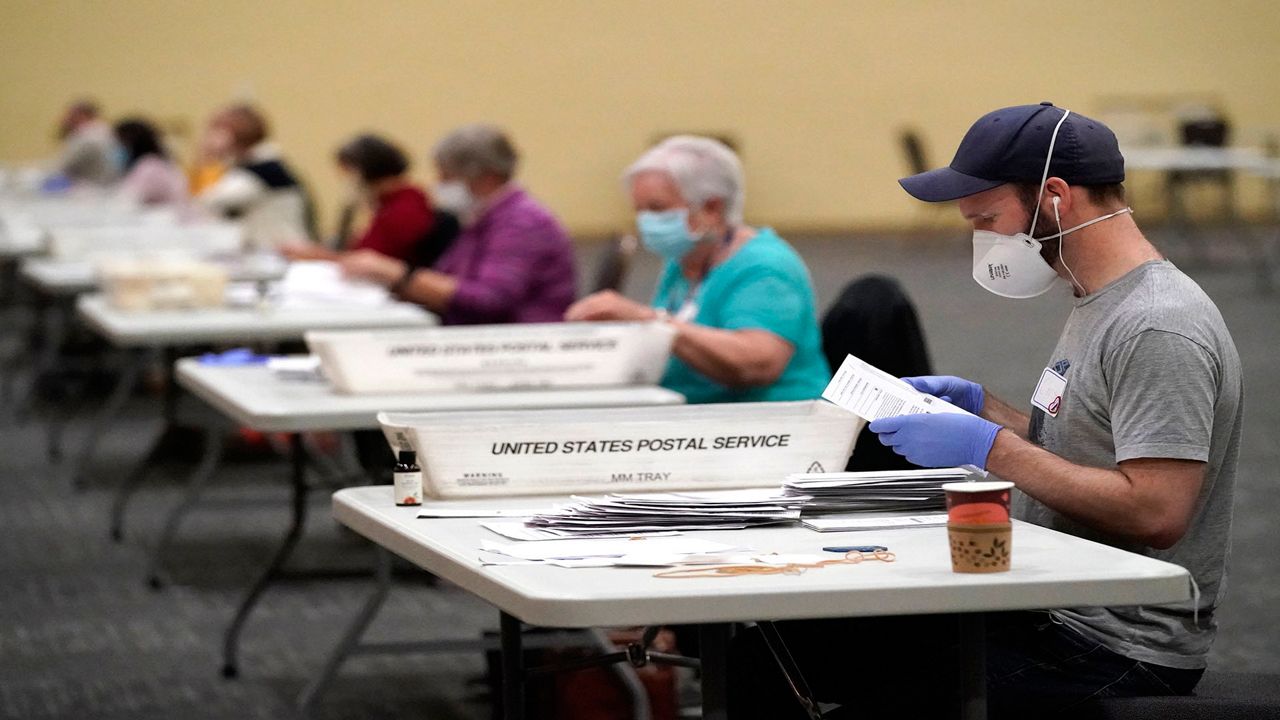There was a certain amount of symbolism, whether intended or not, of Hillary Clinton in Albany on Monday casting the first electoral vote in New York that will make Joe Biden president and Kamala Harris vice president.
Clinton, of course, is a member of a club no one wants to belong to, a club that includes Al Gore and Samuel Tilden: Presidential candidates who won a majority of the popular vote, but failed to reach the needed electoral votes to take the White House.
The electoral college itself has been under scrutiny for years. Critics call it outdated and in need of replacement.
And there's a reason why you never see presidential candidates trapsing through the snow in New York or posing in front of Niagara Falls or the Statute of Liberty.
That's because New York in the grand scheme of things is really not that important in presidential elections. It's pretty much a given our 29 electoral votes will go to the Democratic presidential nominee.
But Republican Assemblyman Andy Goodell wants to change that and allocate electoral votes basd on congressional district. So instead of a winnner take all system, the votes would be dispersed across the state.
"We would see a lot more attention from the presidential candidates to New York and ultimately that would be much more helpful for New York because it would force presidential candidates to be sensitive and reflect what's important to New York," he said.
And there are other proposals to reform the electoral college that would remove the element of chaos from the process. Democratic Sen. James Skoufis is concerned with so-called faithless electors who are pledged to vote for one candidate, but wind up casting a vote for someone else.
"You had this hodgepodge of faithless electors four years ago and in a tight race it would be a constitutional nightmare and the very definition of undemocratic," Skoufis said.
But what about keeping the electoral college as it is, where presidents aren't elected directly by the popular vote? New York is part of the popular vote compact that would force states into participating in a system of handing their electoral votes to the popular vote winner, but it's short of a majority of states needed to ratify.
"By having an electoral college in place which gives a little more vote to the smaller states it reminds the congessional and presidential candidates you have to be sensitive to national politics, but also the individual states," Goodell said.
But Skoufis disagrees.
"You look at every western democracy, the person with the most votes wins," he said. "That's how we do it for state Assembly, state Senate, that's how we do it for Congress. But for some reason often times the person who gets the most votes for president does not win."
New York is part of the popular vote compact that would force states into participating in a system of handing their electoral votes to the popular vote winner, but it's short of a majority of states needed to ratify.
And the disagreement between both Skoufis and Goodell represent the broader debate over the electoral college. The system as it is now benefits Republican candidates running nationwide as only one GOP nominee for president this century, George W. Bush in 2004, has won a majority of votes nationwide.



